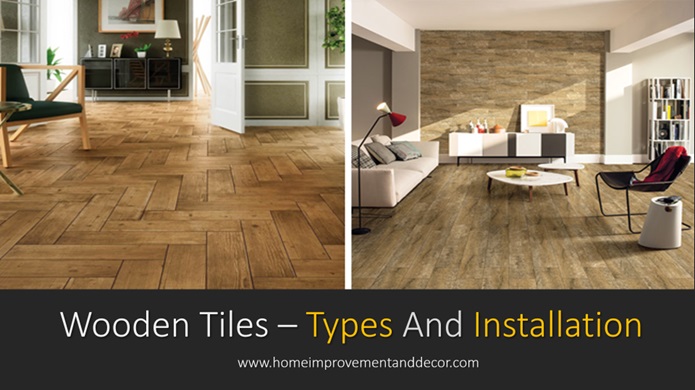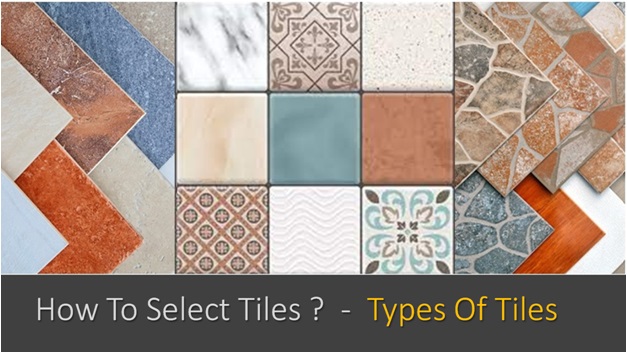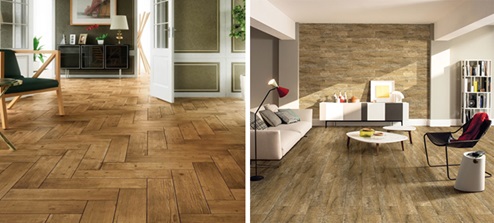
Wooden Tiles
Beginners Guide To Wooden Tiles , Types , Features And Installation.
Wooden tiles are popular and versatile flooring as well as wall cladding. It combines the timeless aesthetic appeal of wood with the durability, technical properties, and convenience of tiles.
These tiles are used in a variety of settings, from residential homes to high-traffic areas of commercial spaces. Wooden floors offer a warm and natural look while providing the benefits of a rich look, durability, and ease of maintenance.
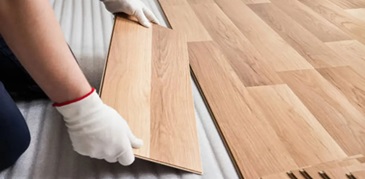
Wooden tiles can be broadly categorized into two types. The first type includes engineered wooden tiles, and the second type includes natural, solid wooden tiles. Both the tiles offer classic wooden floor looks, but they differ in technical properties and pricing.
In this comprehensive guide, we will explore different types of wooden tiles, their pros and cons, the installation process, and their applications in both flooring and wall coverings.
Pros and Cons of Wooden Tiles
Advantages
- Aesthetic Appeal: Wooden tiles provide the classic rich look, warmth and charm of real wood, enhancing the visual appeal of spaces.
- Comfort : Unlike other types of tiles, the wooden tiles are relatively very comfortable in both cold and warm climate.
- Durability: Depending on the type, technical features, wooden tiles can be highly durable and resistant to wear and tear.
- Moisture Resistance: Some wooden tiles, like porcelain and vinyl, are moisture-resistant, making them suitable for wet areas.
- Ease of Maintenance: Wooden tiles are relatively easy to clean and maintain, requiring less effort than natural wood.
- Versatility: They can be used for both flooring and wall coverings, offering design flexibility.
- Eco-Friendly Options: Engineered and vinyl wooden tiles are often made from sustainable and recycled materials.
- Cost-Effective: Wooden tiles can be a cost-effective alternative to solid hardwood flooring.
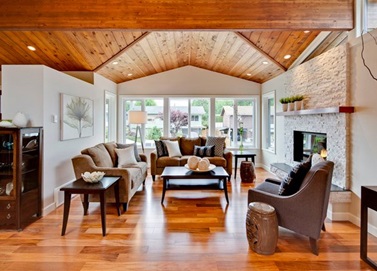
Disadvantages
- Lifespan: Wooden flooring lacks the durability of vitrified tiles and ceramic tiles. Therefore , wooden flooring has a limited lifespan as compared to other types of tiles.
- Cold Underfoot: In some cases, wooden tiles can feel colder underfoot compared to carpets or rugs.
- Hardness: Harder wood-like surfaces may be less comfortable for extended periods of standing.
- Initial Cost: Wooden flooring is a premium product. The upfront cost of certain types of wooden tiles, such as solid wood or engineered wood, can be higher.
- Scratch Susceptibility: Like natural wood, wooden tiles may be susceptible to scratches and dents.
- Refinishing Challenges: Solid wood tiles may require periodic refinishing to maintain their appearance.
- Variation in Quality: The quality and longevity of wooden tiles can vary depending on the type and brand.
Types of Wooden Tiles
Different types of wooden tiles are available in wide range in terms of making, technical features, color, finish and design options. These tiles come in various types, each with its own unique characteristics, ensuring that there is a suitable option for every design and functional requirement.
Latest generations of wooden flooring look almost the same but each type differ in pricing, durability, lifespan maintenance and installation.
The most common types of wooden tiles include:
Solid Wood Tiles
Solid wood tiles are often referred to as wood tiles , natural wood tiles or wood plank tiles. These tiles can be used for both flooring and wall coverings. These tiles are made entirely from natural wood and manufactured in standard sizes.
Depending upon the type of wood used, these tiles can differ in terms of durability, colour, and other technical features. They offer the warmth and elegance of real wood, providing a timeless and authentic look to any space.
Solid wood tiles are a premium product and one of the most expensive options for flooring and covering walls. Here is some general information about solid wood tiles:
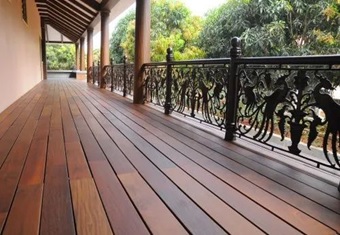
Construction and Material:
- 100% Natural Wood: Solid wood tiles are composed of genuine wood from various tree species, such as oak, maple, cherry, walnut, and others.
- Thickness: They are typically available in various thicknesses, ranging from 3/8 inch to 3/4 inch. Thicker tiles are more durable and can be refinished multiple times.
- Width and Length: Solid wood tiles come in various widths and lengths, allowing for design flexibility and customization.
Conclusion
Solid wood tiles are a premium choice for those who appreciate the authentic beauty, warmth, and character of natural wood. They offer a classic and elegant look but require proper care, maintenance, and installation to ensure their longevity and aesthetic appeal.
When considering solid wood tiles for your project, it’s essential to weigh the pros and cons and consult with professionals for a successful installation and long-term satisfaction.
Engineered Wood Tiles
Engineered wooden tiles are the most widely used wooden tiles due to their design options and economical pricing. Also known as engineered wood flooring or engineered hardwood tiles.
These tiles are a popular and versatile flooring option that combines the natural beauty of wood with enhanced durability and stability. Engineered wood tiles are a more practical alternative to solid hardwood flooring in many settings due to their affordability, technical features, and design options.
Engineered wooden tiles offer the authentic beauty of wood with added durability and stability, making them a versatile and practical flooring option. These tiles are available in commercial grade as well as residential grade.
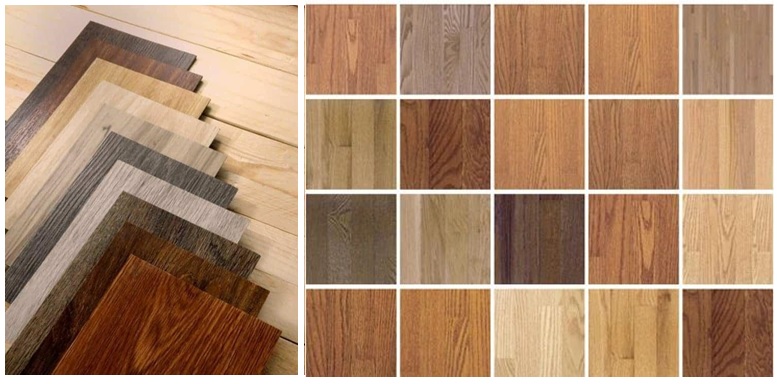
- Material: Engineered wooden tiles are made from a thin layer of real wood bonded to a base material, such as plywood.
- Appearance: They offer the authentic look and feel of natural wood with a real wood veneer.
- Durability: Engineered wooden tiles are durable and more resistant to moisture than solid hardwood.
- Maintenance: They require regular care to maintain their appearance.
- Applications: Engineered wooden tiles are suitable for indoor spaces, particularly living rooms and bedrooms.
Conclusion
The latest generation of engineered wooden tiles offers a wide range of design options with almost the same classical look as a wooden floor and without the limitations of solid wood tiles.
They are well-suited for various settings, including homes and commercial spaces, and come in a wide range of wood species and finishes to accommodate different design preferences.
When considering engineered wooden tiles for your project, it’s essential to choose high-quality products and ensure proper installation and maintenance for long-lasting satisfaction.

